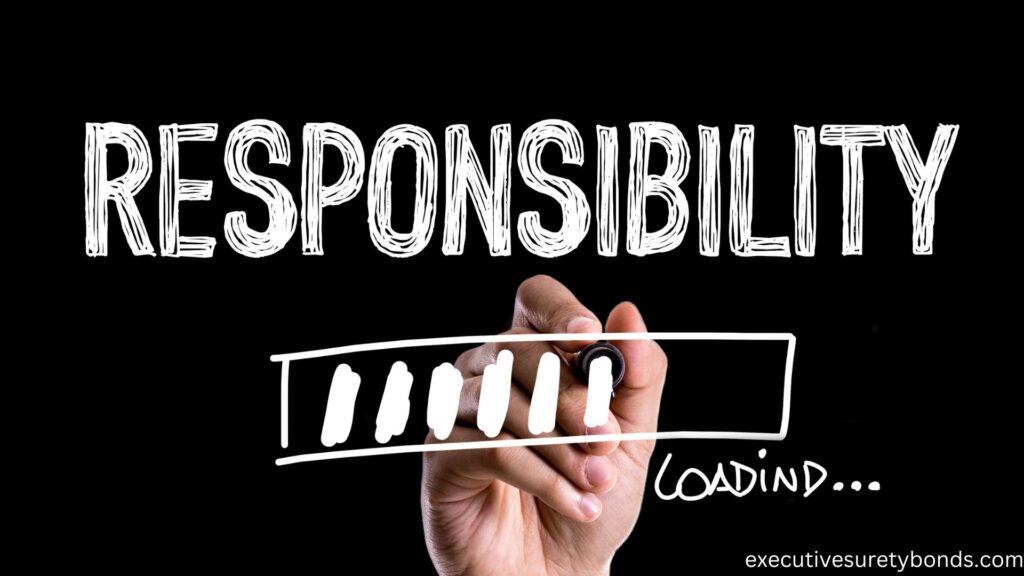Introduction
Bonds are, essentially, financial tools designed to safeguard the interests of individuals and entities interacting with various business sectors. For auctioneers and auction companies operating in Washington State, adhering to the stipulations set forth by the bond isn’t just a legal requirement but also a badge of credibility in interactions with buyers and sellers in the auction world.
The Essence of the Bond: Protecting the Stakeholders
The Auctioneer or Auction Company (Sole Proprietor) Bond in Washington State is fundamentally geared towards protecting consumers and the state from potential financial losses. This could result from fraudulent activities, misrepresentation, or any other form of non-compliance by the auctioneer or the auction company. In simple terms, if a buyer or seller is wronged in a transaction, and the auctioneer or company does not take corrective actions, the harmed party can make a claim against the bond. Thus, the bond serves as a form of assurance that the auctioneer or auction company will operate ethically and adhere to all relevant regulations.
Practical Implications: Operational Transparency and Compliance
Auctioneers and auction companies, particularly sole proprietors, need to maintain a clear pathway of operational transparency and compliance, given that their activities are not just commercial transactions but also encompass legal undertones. Having a bond in place mandates these entities to adhere to a defined framework of operations. This adherence isn’t just a matter of legal compliance, but it also becomes a testament to their operational integrity, which can be a vital element in gaining the trust of consumers and clients.
Crafting a Safe Haven: Impact on Consumers and Business Operators
From the consumer’s perspective, knowing that an auctioneer or auction company is bonded provides a semblance of safety and assurance, given the financial safeguard the bond provides. Conversely, for auctioneers and companies, being bonded not only fulfills a regulatory requirement but also potentially positions the entity as a credible and trustworthy operator in the market. This dual-faceted safety net thereby creates an environment where transactions can be conducted with a higher degree of confidence and assurance on both ends of the deal.
Maintaining the Bond: An Ongoing Responsibility
For auctioneers and auction companies, maintaining the bond is not a one-time affair. It’s an ongoing responsibility that requires periodic renewals and ensuring that the bond amount aligns with any changes in legal requirements. This ongoing task ensures that they remain compliant and continue to offer a secure operational environment for their clients and stakeholders.
Conclusion
In the bustling and dynamic world of auctions, the Washington State Auctioneer or Auction Company (Sole Proprietor) Bond emerges as a pivotal player. It is ensuring that the vibrant transactions are layered with a degree of security, reliability, and assurance. For auctioneers and companies, this bond is not merely a regulatory tick-box but is emblematic of their commitment to ethical operations and consumer protection.
In the light of legality and ethical business operations, the bond brings to the table not only a shield for consumers but also a silent yet potent endorsement of reliability for the auctioneers and companies under its purview. Consequently, the hammer of assurance, symbolized by the bond, quietly yet profoundly influences the ethical, legal, and operational landscapes of the auction world in Washington State.
Frequently Asked Questions
Can a claim against the Washington State Auctioneer or Auction Company Bond affect personal assets of the sole proprietor?
In the context of a Sole Proprietorship, the individual owner’s finances and the business’s finances are legally indistinguishable. Therefore, if a claim is made against a Washington State Auctioneer or Auction Company Bond and is found to be valid, the sole proprietor may be liable to pay. If the bond amount doesn’t cover the entire claim or if the bond itself is not financially capable of covering the claim, the sole proprietor’s personal assets could potentially be at risk to satisfy the claim. This intertwining of personal and business assets is a crucial aspect of understanding the depth of sole proprietorship bonding and its implications.
Is the Washington State Auctioneer or Auction Company Bond transferrable in case of business ownership transition?
Bonds, including the Auctioneer or Auction Company Bond, are typically not transferrable between owners. If a sole proprietor sells their business, or if the business is transferred to another entity or individual, a new bond must generally be obtained by the new owner. This ensures that the bond is accurately underwritten based on the new owner’s financial credentials and experience. It is essential to note that even in cases of ownership transition within family businesses, the new owner must secure a separate bond under their name to remain compliant with state regulations.
Does the Auctioneer or Auction Company Bond ensure the authenticity of items auctioned?
While the bond is designed to protect consumers from fraudulent activities or unethical behaviors by the auctioneer or auction company, it does not serve as a guarantee concerning the authenticity of items being auctioned. The bond can safeguard against deceptive trade practices and ensure that the auctioneer adheres to state regulations and ethical standards. However, verifying the authenticity of auction items falls largely on the auctioneer’s responsibility, and claims regarding fraudulent items may need to be addressed through legal channels. It is pivotal for consumers to ensure due diligence in such contexts and utilize any available avenues for authentication verification of items they aim to purchase at auction.

